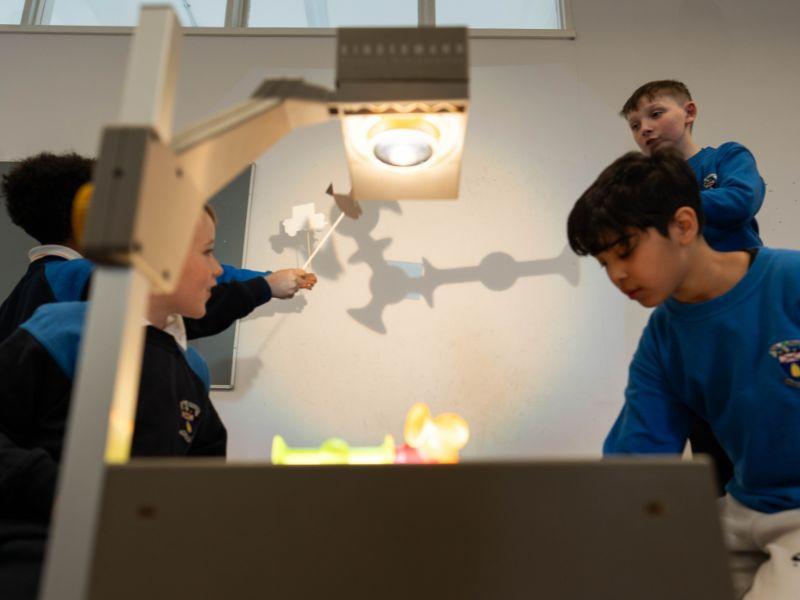

DCU Institute of Education marks first UN International Day of Play with play event underpinned by research
Classes from local schools attended the play themed event last week, and staff were encouraged to bring their children. The event also featured presentations of research from the DCU Institute of Education underlining the importance of the United Nation's recognition of play as a human right.
Researchers from the School of Language Literacy and Early Childhood Education hosted first class pupils from a local primary school, and children from a local preschool on DCU’s St Patrick’s Campus. Staff were encouraged to bring their own children to the event, at which researchers presented their work on play.
The event included two rooms where children could engage in socio-dramatic play (in which children are encouraged to act out imaginary situations, or inhabit different characters), and play with lego. There was also space given over to playing with percussive instruments, outdoor play, and, for older children, woodworking.
Organiser Dr Carol-Ann Ó'Sioráin said
"We are emphasising the importance of letting children lead play, standing back to let children explore and ask questions or to both problem pose and problem solve in their own way. As adults we need to realise that play requires energy, can be noisy and also emotional. Adults are important in the play environment as players themselves and as play partners when invited by the children. Play is intergenerational and supports positive emotional wellbeing and mental health."
The event was organised to mark the inaugural UN International Day of Play, which has been declared by the United Nations General Assembly to champion and protect children's right to play.
Dr Therese Farrell and Fiona Giblin presented their research on this exact topic on the day. Their chapter in the recent Routledge collection 'Pushing the Boundaries of Human Rights Education Concepts, Challenges and Contexts' urged the recognition of this key right through the creation of participatory pedagogies in which teachers engage and challenge children in moments where they have elected to play.
Ruth Collins and Dr Maura Coulter’s research on supporting children during risky outdoor play (climbing trees, jumping, balancing.) The project examined ways that teachers can facilitate this type of play with their classes by implementing a six week programme of risky play at a local school. The children’s ideas and observations were recorded, along with ways risky play can support development. The key factor in these situations is that children feel safe and supported. Dr Coulter is also collaborating with Dr Orla Kelly on an Erasmus + project examining risky outdoor play. They hosted an event on DCU’s All Hallows campus last week.
Dr Cora O’Farrell and Dr Sinead McAuley Lambe’s project examined play and story, the ‘native languages of children.’ In April, they ran a four week course designed to engage parents and caregivers who want to develop their children’s inner moral and spiritual lives. The course encouraged parents to consider their own playfulness, and the developmental power of play and story. The project also engaged in ‘self-study’ of teaching practice.
